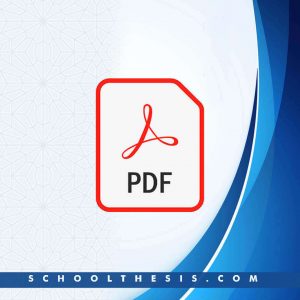
Resource Use Efficiency Among Fadama Crop Farmers in Ibadanibarapa Agricultural Zone of Oyo State, Nigeria
Quick Navigation for Final Year Undergraduates, Masters (Thesis), and Ph.D. Dissertation Students Who Need Our Services on Their Research Works
| Find More Project Topics | FIND HERE |
| Hire Us for Thesis Works | HIRE NOW |
| Hire Us for Project Works | HIRE NOW |
| Hire Us for Seminar Works | HIRE NOW |
| Hire Us for Assignments | HIRE NOW |
| Hire Us for Proposals | HIRE NOW |
| Contact Us | HERE NOW |
Abstract on Resource Use Efficiency Among Fadama Crop Farmers in Ibadanibarapa Agricultural Zone of Oyo State, Nigeria
The study investigated the resource use efficiency among Fadama crop farmers in Ibadan
Ibarapa agricultural zone of Oyo state, Nigeria. Data were collected from 120 respondents who
were randomly selected and interviewed using both interview schedule and questionnaire. The
data collected were presented using percentage and means. The findings o revealed that there
was no significant difference in the productivity between Fadama and non fadama (soko)
farmers, while there was a significant difference between the productivity of Fadama and non
fadama (watermelon) farmers as well as Fadama and non fadama maize farmers.The gross
margin analysis of Fadama and non Fadama crop farmers revealed that Fadama soko farmers and
Fadama maize farmers were more profitable than the non Fadama farmers in the area. For
watermelon, the non fadama farmers were more profitable because they had higher output. The
findings also revealed that labour, fertilizer, insecticides and seed influenced the technical
efficiency of soko farmers. Herbicides and insecticides influenced the technical efficiency of
watermelon farmers, while labour, insecticide and seed influenced the technical efficiency of
maize farmers. The positive coefficient for age variable implies that the older farmers were more
technically inefficient than theyounger ones. Also negative coefficient for education implies that
the farmers level of technicalinefficiency declined with more education. With regards to farmerspecific
factors, especially education, there is the need for policyto promote formal education as
a means of enhancing efficiency in production over the long-term period. This is because it
would enable farmers make better technical decision and also help in allocatingtheir production
inputs effectively.
In the short-term, informal extension education could beeffective, especially
when targeted at farmers who have had limited formal educationalopportunities.The coefficient
of farming experience was estimated to be negative as expected andstatistically significant at the
5-percent level. The implication is that farmers with more years offarming experience tend to be
more efficient in crop production. It is possible that such farmers gained more years of
farmingexperience through “learning by doing,” and thereby becoming more efficient.The study
also found that farmers under Fadama harvested more per unit ofland of output of crop than
nonfadama farmers for soko and maizeand this confirms the hypothesis that programme
intervention has the capacity to succor farm production problems while accruing more income to
farmers.
Disclaimer
This research material is intended for academic use only and should be used as a guide in constructing your research project and seminar presentation. You should never duplicate the content word for word (verbatim), as SCHOOLTHESIS.COM will not be held liable for anyone who does.
The purpose of publishing this material is to alleviate the stress of hopping from one school library to the next in search of research materials. This service is lawful because all educational institutions allow students to read past projects, papers, books, and articles while working on their own.
SCHOOL THESIS is merely giving this information as a research reference. Use the document as a reference or structure for your own research paper. This paper’s content should be able to assist you in coming up with new ideas and thoughts for your own study
Resource Use Efficiency Among Fadama Crop Farmers in Ibadanibarapa Agricultural Zone of Oyo State Nigeria research paper, should only be used as a guide.